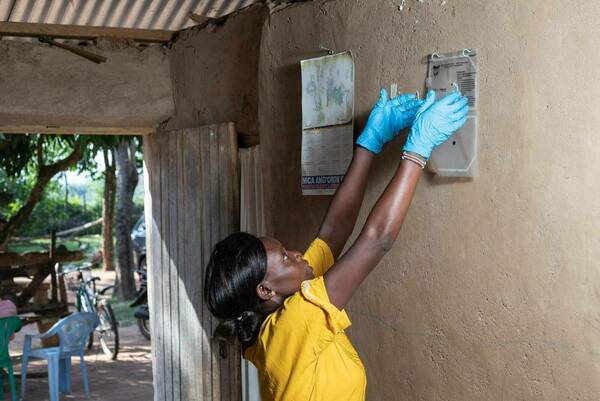Notre Dame to convene federal, state and nonprofit leaders to address national opioid crisis
Across the United States, the opioid epidemic has devastated communities as opioid-related deaths have skyrocketed. According to data from the National Vital Statistics System and the CDC Wonder Database, the opioid death rate rose by 2,473 percent between 1979 and 2022.
To hold drug manufacturers and distributors accountable for the rise in fatalities, states and local political subdivisions brought lawsuits against major pharmaceutical distributors, manufacturers and pharmacy chains, reaching settlements that total nearly $50 billion to date.
The National Opioids Settlement and other settlement agreements have created a sense of hope for families and communities affected by the opioid crisis and provided a profound opportunity for states across the nation to begin to repair the damage the epidemic has wrought.
On Aug. 5-6, the University of Notre Dame will convene A Pathway to Hope: Summit on the National Opioids Settlement to bring together elected officials, academic researchers and other federal, state and nonprofit organization leaders from across the country to discuss and develop evidence-based strategies to most effectively distribute the opioid lawsuit settlement funds. The summit’s presentations will focus on framing the overall opioid crisis, its impact on communities and families, and potential solutions backed by evidence. The goal is to find ways to maximize the funds’ impact on the families and communities affected by the opioid crisis.
Led by Notre Dame’s Poverty Initiative, the summit will explore how evidence-based practices can inform decisions and ensure that settlement funds best help the victims.
“A primary goal of the Poverty Initiative, which launched last fall, is to bring faculty together with policymakers, philanthropists and providers to discover new pathways to break the cycle of poverty,” said economics professor Jim Sullivan, who also serves as the director of the Poverty Initiative and the Wilson Sheehan Lab for Economic Opportunities.
“The Pathway to Hope Summit embodies that mission as the University will convene some of the nation’s leading experts to find solutions to the opioid crisis that has afflicted families all across this country.”
Sullivan and his team expect one unique outcome of the summit to be a co-created research agenda led by Notre Dame faculty to work with people on the frontlines to ensure the approaches are accurate, scalable and effective.
The Pathway to Hope Summit is an invitation-only event. More information is available at pathwaytohope.nd.edu.
Contact: Sue Ryan, Executive Director of Media Relations, sue.ryan@nd.edu; 269-377-5983
Tracy DeStazio, Associate Director of Media Relations, tdestazi@nd.edu; 269-769-8804
Brandi Wampler, Associate Director of Media Relations, brandiwampler@nd.edu; 574-248-0428
Originally published by at news.nd.edu on July 19, 2024.
Latest Research
- NSF Cyber SMART’s fall meeting shapes fifth year of project, legacy and future plans, and adds new memberThe U.S. National Science Foundation (NSF) Cyber SMART center gathered for its fall meeting on the University of Notre Dame campus this September. The meeting served as a checkpoint with progress reports and new projects from research leads and students…
- Slavic and Eurasian studies professor wins Humboldt fellowship to research how Russia’s religious past shapes its presentWhen Russia invaded Ukraine on Feb. 24, 2022, Sean Griffin realized his second book needed a new title. Griffin, an associate professor in the University of Notre Dame’s Department of…
- Notre Dame’s R.I.S.E. AI Conference builds interdisciplinary collaboration to inform human-centered artificial intelligenceAs artificial intelligence (AI) transforms nearly every sector of society — from healthcare and education to governance and global development — a critical question emerges: How can we conscientiously design and deploy these powerful technologies to positively impact society? This…
- University of Notre Dame joins the Global Coalition of Ukrainian StudiesThe University of Notre Dame has joined the Global Coalition of Ukrainian Studies after signing a Memorandum of Cooperation (MOC), formalized on September 24, 2025, at the Ukrainian Institute of America in New York City. Notre Dame joined four other American…
- The University of Notre Dame’s Mendoza College of Business and Industry Labs team up to inspire national security manufacturing competitiveness in the regionThe South Bend - Elkhart Region is full of manufacturing companies that are poised to grow, and Executive Master of Business Administration (EMBA) and Master of Business Administration (MBA) students at the University of Notre Dame are finding innovative ways to contribute to that growth. Earlier…
- Notre Dame research informs WHO conditional recommendation for spatial repellents in malaria vector controlThe World Health Organization (WHO) recently announced a “conditional recommendation” for spatial emanators, also known as “spatial repellents,” in the fight against malaria. This key determination was informed by spatial repellent studies that included the Advancing Evidence for the Global Implementation of Spatial Repellents (AEGIS) Project in Kenya, led by the University of Notre Dame and funded by Unitaid. The findings from this particular study were recently published in The Lancet.













